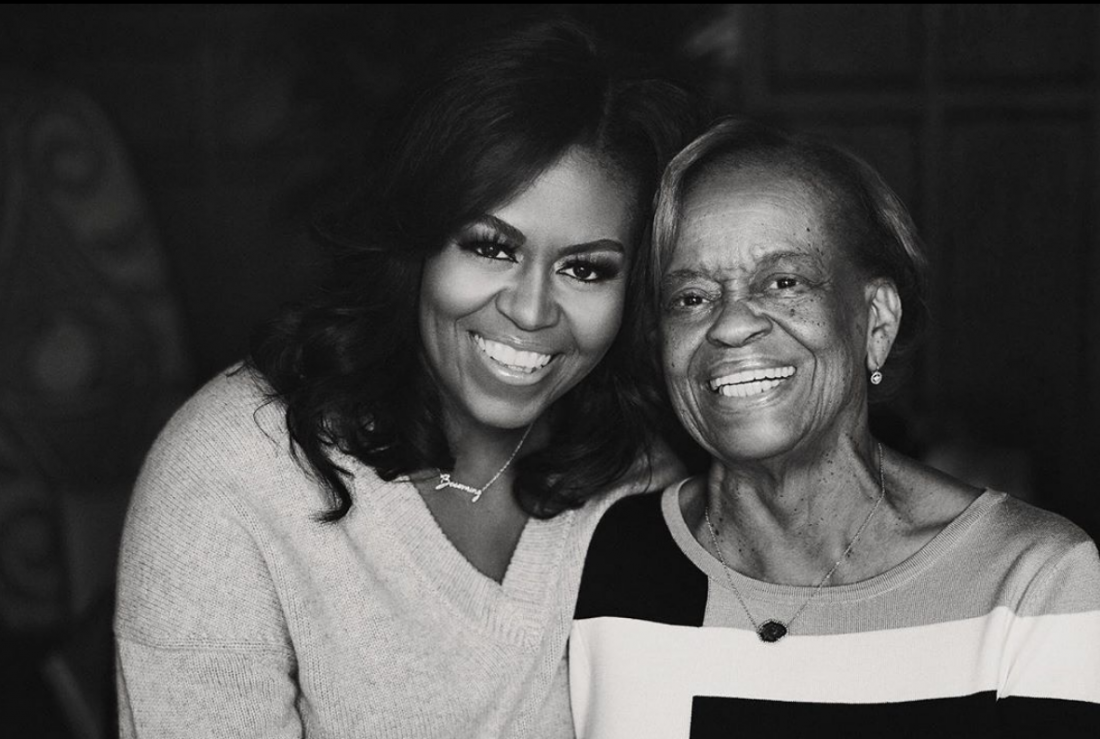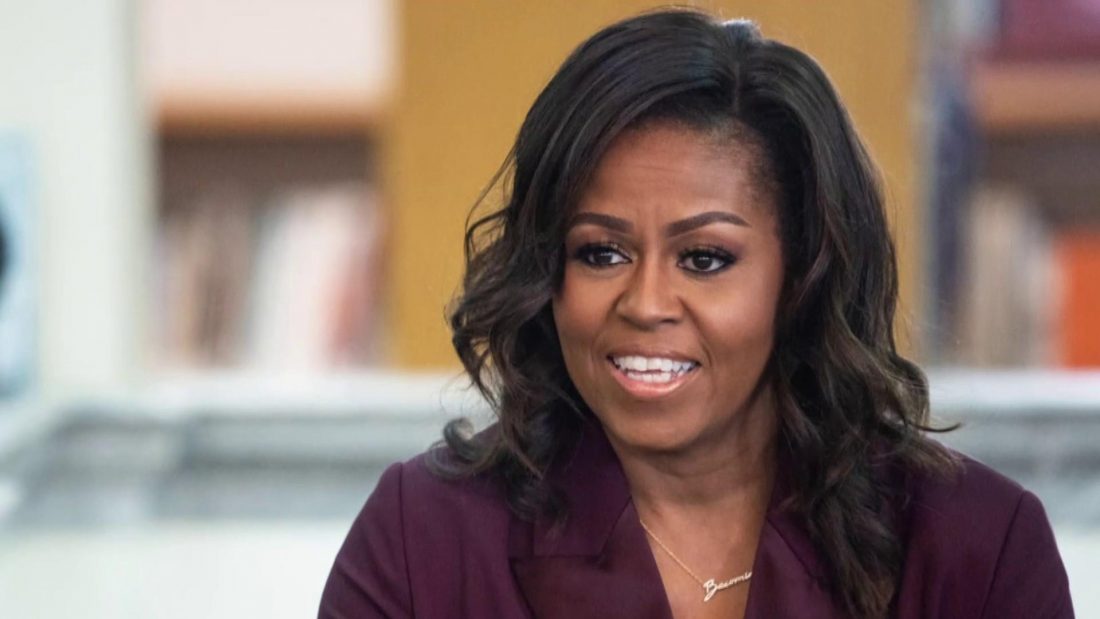Michelle Obama is helping to reframe the conversation around menopause after speaking about her experiences of what doctor guest Sharon Malone called “puberty in reverse” in Michelle’s new podcast series.
The mother-of-two opened episode three of the podcast by talking about empowering daughters, Malia and Sasha, to ask questions about their bodies and normalising conversations around women’s health.
She then shared what she wished she’d learnt from her own mother, Marian Robinson, who admitted she doesn’t remember her symptoms of menopause, Michelle revealed.

Image credit: Michelle Obama Instagram
She said: “I was like…’Ma, you don’t remember it at all? Can you give me some hints? Did you have hot flashes?’…I barely remember what I did last week, so maybe by the time I’m 80 I won’t remember menopause either, but that is another reason why we need to talk about it, while we’re remembering it.”
During the podcast, the former first lady said “information is power” when it comes to women’s health and the importance of “setting the stage” to talk to young people about the changes they’ll experience.

Image credit: Michelle Obama Instagram
Referencing her own daughters, now 22 and 19 years old, Michelle described how her and husband Barack went about having those sometimes awkward conversations.
“I’ve approached conversations with my daughters very differently…We started talking about their bodies, what’s gonna happen, what that means [and] talking about it openly. I found that my girls would be as open as they saw me being, so if they thought I was tiptoeing around something or I was like: ‘Don’t ask about that’ or shut down when they had a question, even if the question was uncomfortable, I had to learn how to put that mommy poker face on.
“I’ve approached conversations with my daughters very differently…We started talking about their bodies, what’s gonna happen, what that means [and] talking about it openly.”
“Sometimes I’d try to buy myself a night – ‘Well, let’s sleep on that! And talk about it in the car’ just to figure out what to say because I always wanted my daughters to feel comfortable with their bodies [and] comfortable asking questions. In order to do that, you can’t have anything that’s off limits because, especially when kids are young, the minute they see you clenching up about something…they will never ask it again or they’ll never ask you and instead they’ll go and talk amongst themselves.”
Her guest was long-time friend Dr Sharon Malone, an obstetrician-gynecologist or OB-GYN in the US.
She broke down the different stages of menopause for listeners, which begins at perimenopause – the years leading up to menopause which marks the end of a woman’s reproductive years.
According to the NHS, menopause can start any time between 45 and 55 as a woman’s oestrogen levels decline. In the UK, the average age for a woman to reach menopause is 51, but about one in 100 women will experience the menopause before 40.
Dr Sharon said: “Then you are postmenopausal, for sure, when it’s your last period plus a year.
And why it’s so confusing is, it happens to you before you’re even thinking about it – that’s the problem – and so you’re 43, 44, and you start to be irritable or you’ve got hot flashes, or your periods get screwy.
“That’s why you kind of need to know what to expect, so you don’t think that there’s something terribly wrong or ‘What am I gonna do about this?’…the range of symptoms is huge.”
“That’s why you kind of need to know what to expect, so you don’t think that there’s something terribly wrong or ‘What am I gonna do about this?’…the range of symptoms is huge. Then there are some women, those few, lucky women, who don’t really have any symptoms.”
Some of the symptoms the pair spoke about were mood swings and irritability, caused by hormone imbalances, hot flushes, excessive sweating and sleeplessness.
Women also experience reduced sex drive, headaches, low mood and depression as well as “vaginal dryness, painful intercourse, urinary symptoms”, according to Dr Sharon, who explained these secondary symptoms can show up later.

The main treatment to relieve the symptoms of menopause is hormone replacement therapy (HRT) to increase a woman’s oestrogen levels.
Dr Sharon explained it can prevent osteoporosis, which the menopause increases a woman’s risk of, and “you will have less of those longer-term complications…like vaginal dryness [and] painful intercourse, if you want to remain sexually active.”
Michelle later said: “What a woman’s body is taking her through is important information. It’s an important thing to take up space in a society because half of us are going through this but we’re living like it’s not happening.
“Our power as women, our power and our voice…also comes from our ability to value our health and the vessel that we exist in.”
Listen to the Michelle Obama Podcast on Spotify.












